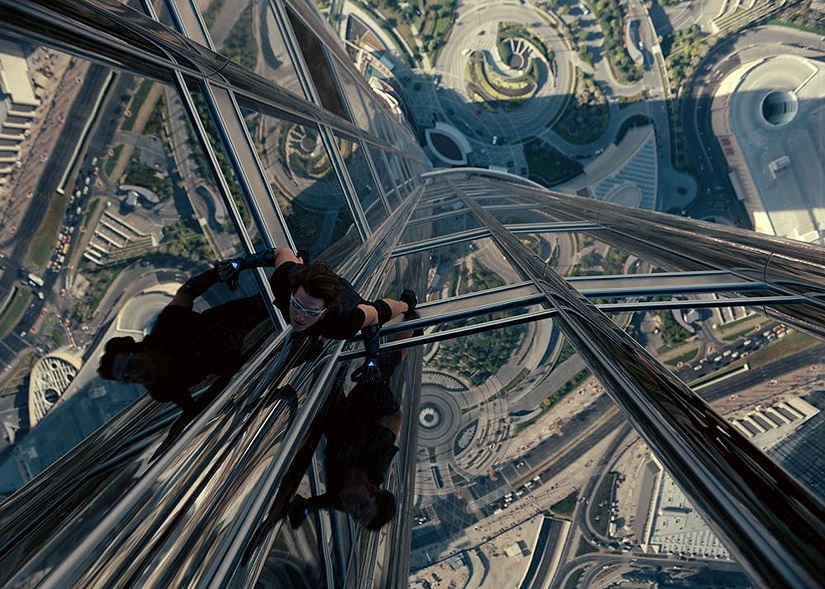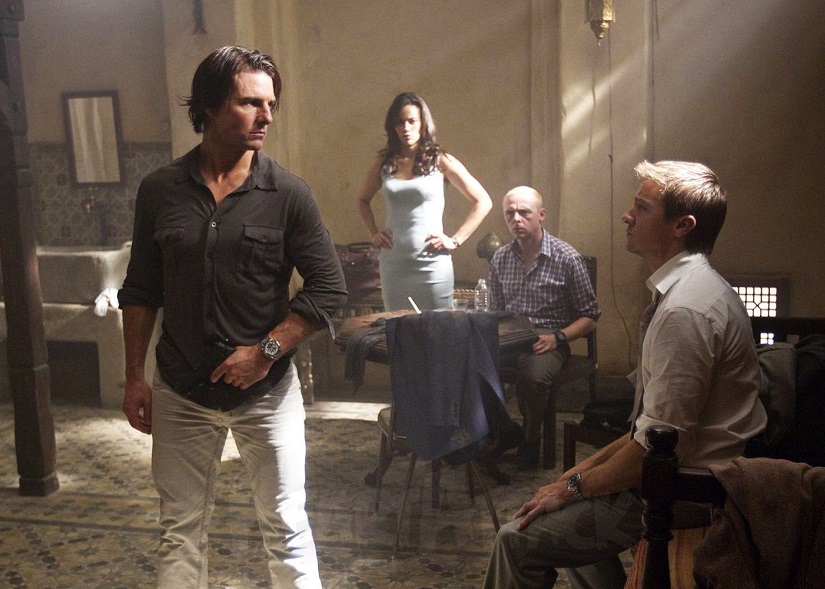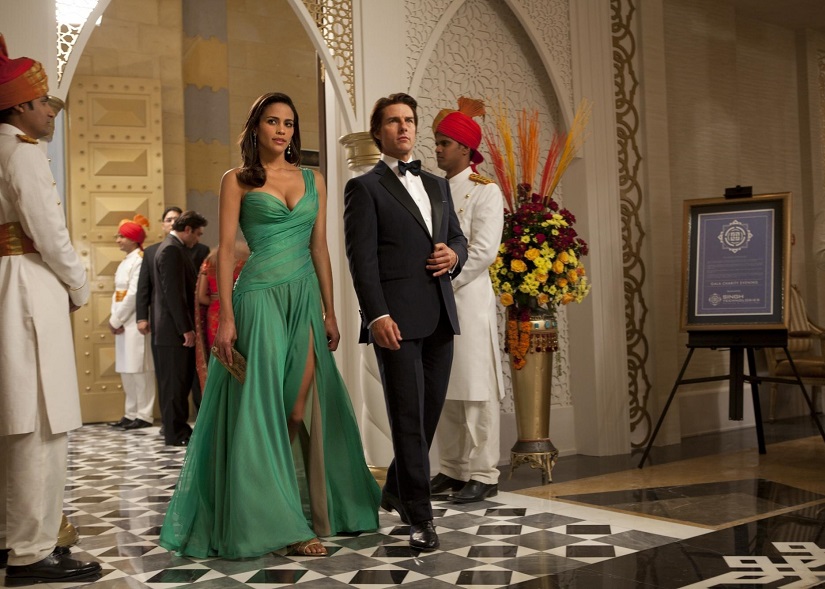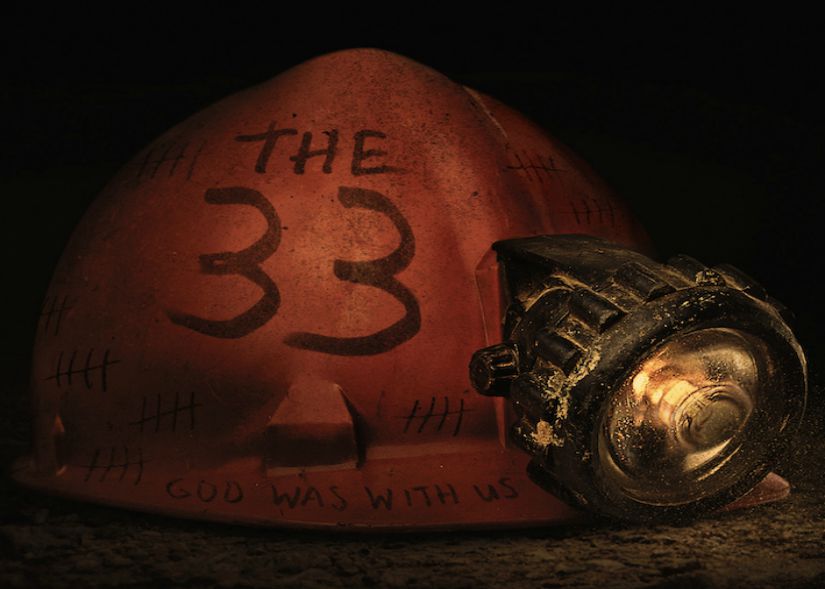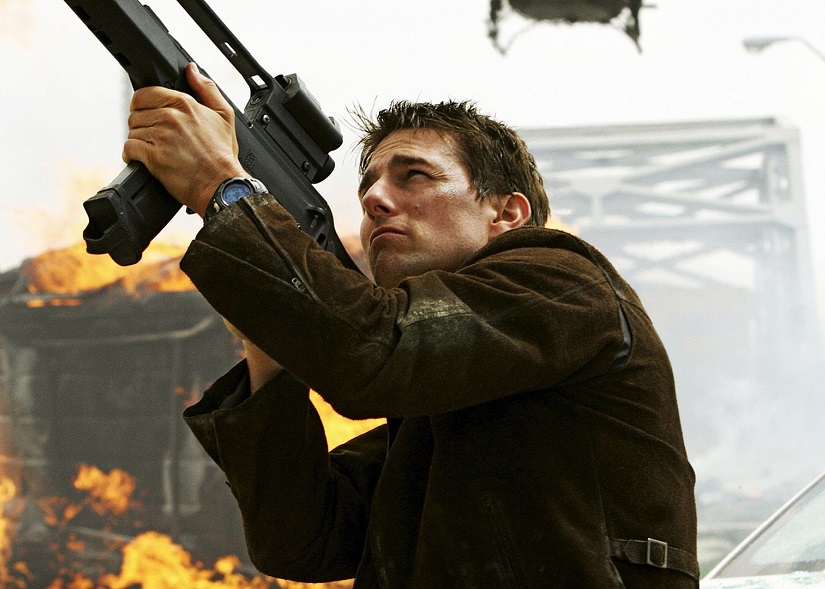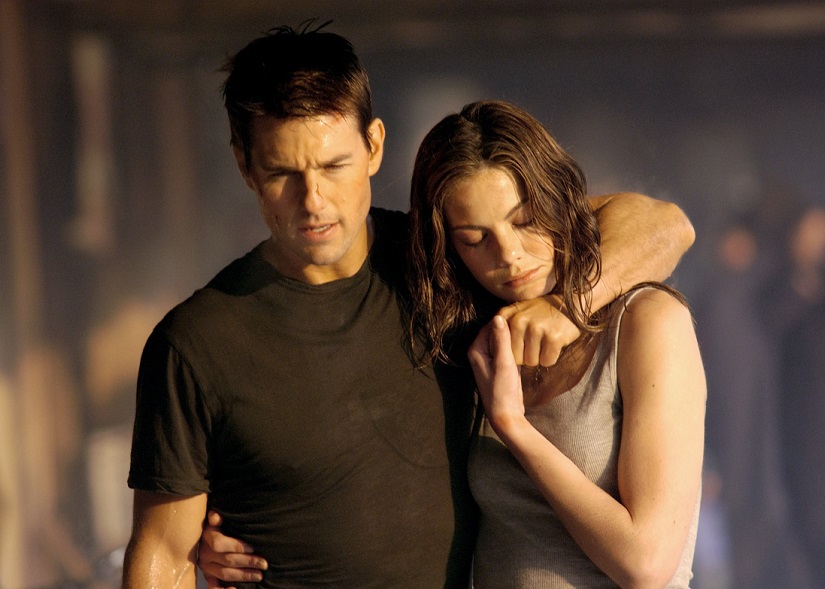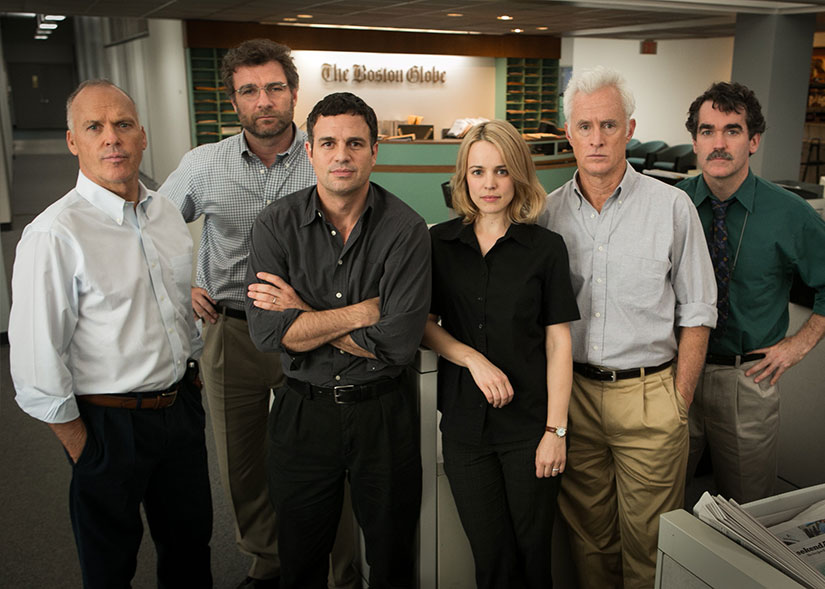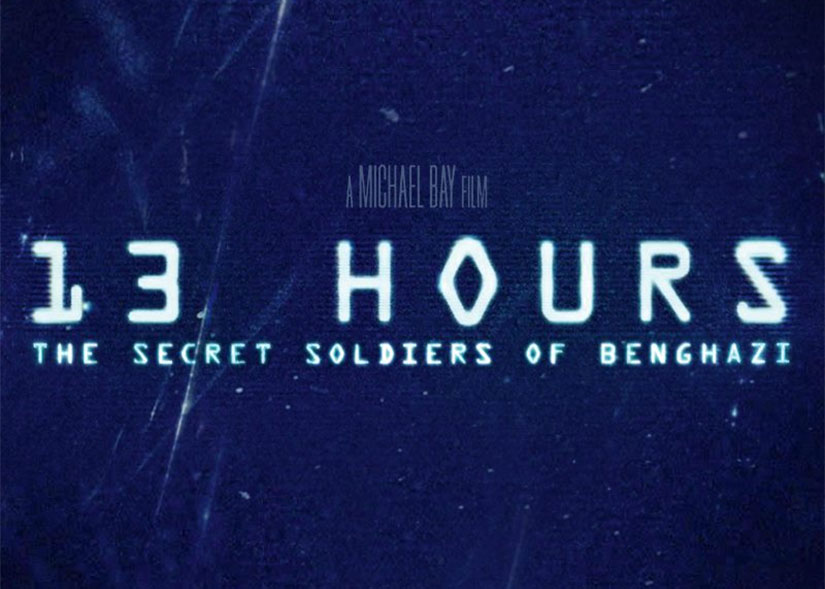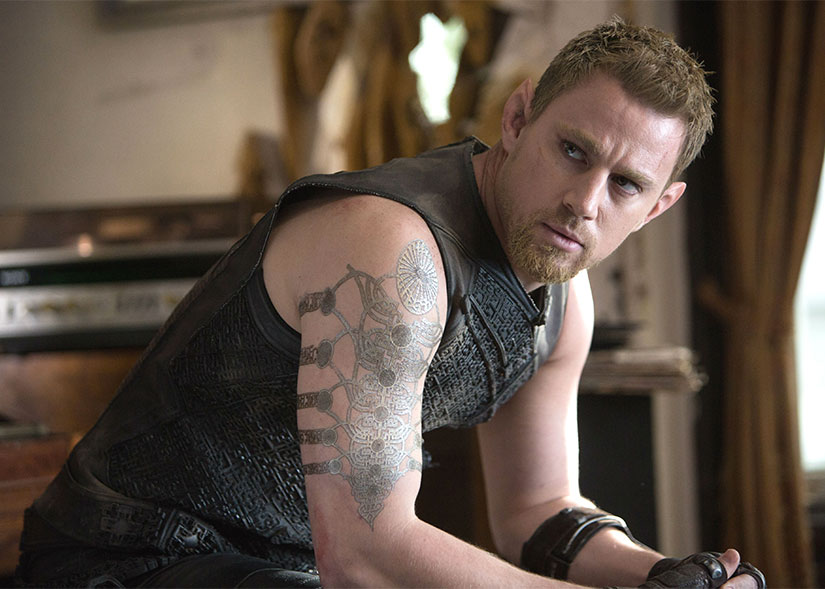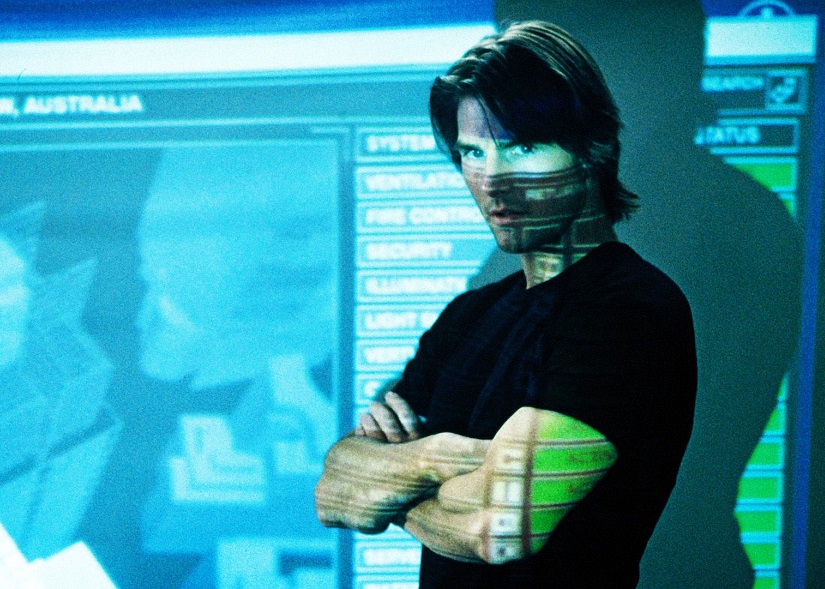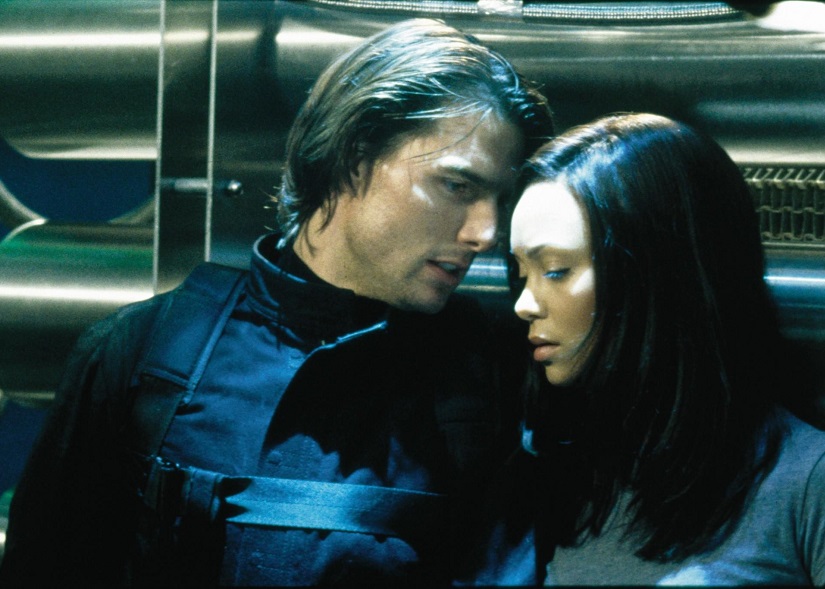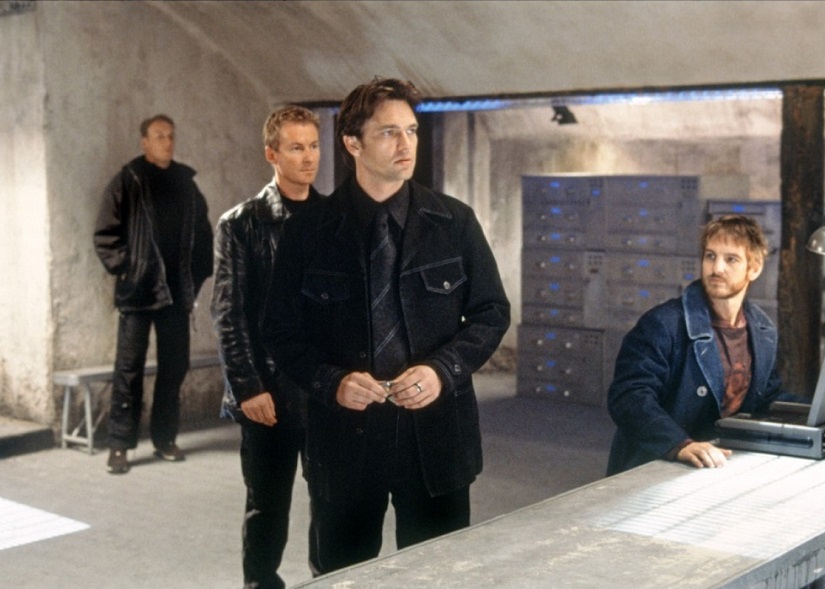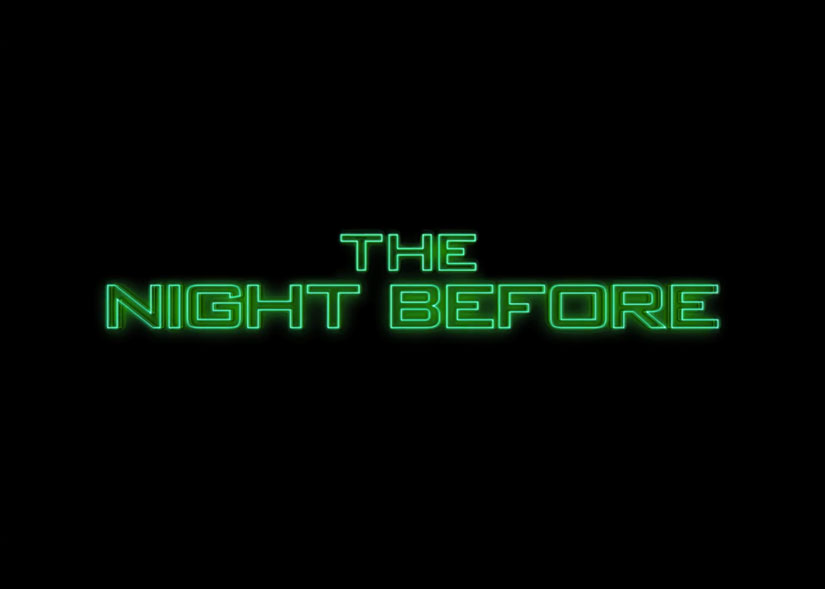Series Recap - Mission: Impossible - Ghost Protocol (2011)
After Mission: Impossible 3's straight-faced, character-driven approach made a messy attempt at returning the series to the first movie's cereberal roots, Ghost Protocol seems a natural companion piece to Mission: Impossible II. For one thing, Ethan's hair has grown long again, while the movie adopts the same all bombast, all the time style which John Woo made so intolerable through endless empty flourishes and Robert Towne's lousy screenplay. If M:I3 was a lesser imitiation of the original, though, Ghost Protocol director Brad Bird takes the philosophy of M:I II and makes the movie that movie should have been. There's no nonsense about Scottish doppelgangers, disquisitions about heroes and villains or ridiculous showboating here. Instead, the fourth entry in the series has nothing more on its mind than delivering two hours of relentless entertainment. It succeeds admirably.
Perhaps the most telling difference between this and M:I II is that where Woo's movie came across as an extended Tom Cruise ego trip, Ghost Protocol delights in how much physical damage it can inflict on its star. Bird turns Hunt into Wile E. Coyote, a figure whose absence of personality matters not in the slightest when the real pleasure is watching him get pulverised on a semi-regular basis. This in turn makes him quite a bit more likeable than the two previous movies, if only because his sheer persistence in the face of constant physical trauma becomes amusingly, morbidly admirable. Rarely has even the boldest action movie climax been so unashamedly Looney Tunes-esque as the ridiculous showdown in a high-tech car park, culminating in Hunt driving a car down a straight drop of several floors to the concrete ground.
The plot is so thin as to barely exist. The IMF team is framed and disavowed following the destruction of the Kremlin, for which responsibility lies with Kurt Hendricks, a man determined to start a nuclear war for reasons no-one can entirely fathom. Hendricks barely appears at all, to the extent I'd mostly forgotten there even was a main villain for most of the movie's running time. Bird uses plot as little more than a loose framework around which to build a set-piece delivery machine, churning out one action sequence after another with little interest in developing the narrative in any meaningful way. Where that might be problematic in lesser hands, Bird shoots each sequence with such freewheeling energy that it's a joy just to be taken along for the ride. Making his live action directorial debut off the back of Pixar's The Incredibles and Ratatouille, there's a clear cartoonish influence on the way he gleefully abandons reality in search of squeezing every drop of entertainment and comedy value out of each frame.
The Burj Khalifa sequence, the apex of the series' love of vertical action, is the most thrilling of the lot and among the most astounding movie set-pieces of the decade so far. Benefiting enormously from Cruise's devotion to performing every stunt himself, Bird delights in evoking the vertiginous heights Hunt is manoeuvering above. Having Hunt climb the side of the world's tallest building isn't enough, of course, so the movie throws in a number of terrific visual gags surrounding his malfunctioning adhesive gloves and a variant on the fulcrum technique used for a skyscraper break-in in the last movie, here employed in an insane attempt at returning to the hotel room from whence he came and naturally faceplanting a window on the way. Anyone who missed seeing it in IMAX should be kicking themselves, but it is shot so well as to work almost as effectively on the small screen. After the overblown blue-and-oranges of M:I3, Robert Elswit's cinematography puts a strong emphasis on bringing out the colour and vibrancy of each location. Ghost Protocol is frequently gorgeous to look at and captures the distinctive identity of each destination in a way Woo and Abrams so comprehensively failed at.
What anchors the movie is the strongest team dynamic of the series to date. Simon Pegg returns from M:I3 and is given far greater prominence as the movie's comic relief gadget maestro. With Ving Rhames' stalwart Luther held back until a cameo at the end, Jeremy Renner and Paula Patton are the newcomers making up the rest of the team. Renner is wonderful as Brandt, a grumpier, more reluctant version of the Ethan Hunt from the first movie and something approaching a voice of sanity in a world gone utterly bananas. His chemistry with Pegg and Cruise is immediately endearing, even if his links to Hunt's past feel a little shoehorned in. Paula Patton's Jane Carter gets a slither of backstory, immediately making her the series' best developed female character. While Patton isn't an especially strong actress, she looks believeable tough - her kicking off her heels before going into battle is a small, badass wonder - and rocks a cocktail dress to brain-melting levels of hotness.
The movie's approach to continuity is interesting, although not altogether successful. The reveal that Brandt was on the security detail assigned to protect Hunt's wife, Julie, when she was ostensibly killed just sort of sits there, serving little purpose until a faintly sweet coda in the final scene. The question of what actually happened to her is brought up a number of times and drags the pace down each time. I appreciate the movie not simply ignoring its predecessor's potentially difficult resolution, but a shorter, sharper explanation would have been more than sufficient. A callback to the manner in which Hunt is taken to see Max in the first movie is a fun if nonsensical nod, but can't help but feel disappointing when the imperious Vanessa Redgrave fails to turn up. That Hunt instead turns out to be making a call to the man he freed from a Russian prison (to the tune of 'Ain't That A Kick In The Head', no less) in the first act pays off that foreshadowing reasonably well, but if you're going to tease one of the series' most vivid characters, you'd damn well better deliver. Much better is how the movie's final line is used to slyly set up the events of Rogue Nation, which will have a hell of a job on its hands if it's to raise the bar on Ghost Protocol's stupendous action extravaganza.
Feel the Plight of the Chilean Miners in First Trailer for The 33
[youtube id="hOoIBOYqHyw" autoplay="no"]
Based on a true story, The 33 follows the story of the 33 Chilean Miners who were trapped inside of a 100 year old mine for 69 long and painful days until a team was able to free them. The film promises to dramatize events recounted by the miners themselves, and it's got quite the cast. Starring Antonio Banderas, Lou Diamond Phillips, Juliette Binoche, and James Brolin, the first trailer gives you pretty much all you need to know.
If you disregard the obviously pointed trailer dialogue (trailers for biopic events like this are usually poorly edited), the fact that the trailer gives away the entire story (it doesn't really matter in this case if you followed along with it in the news), and that one "Say Something" pop song that makes no sense here, there's definitely a good core concept at hand. Either way, any film that explores the lives of Chileans just a little bit is a big win in my book. You don't see those every day. Heck, you don't really see them ever. That's probably why Lou Diamond Phillips is here. He's the guy Hollywood gets when there's a big Latino movie and they want to attract a certain audience. That accent is terrible, Lou.
The 33 releases November 13th.
Series Recap - Mission: Impossible 3 (2006)
Following the widely-derided Mission: Impossible 2, the series remained dormant for a full six years before JJ Abrams, then best known for his work on TV spy series Alias, was brought onboard to try and resurrect it. Star Tom Cruise was also in need of a vehicle to win back his place in the heart of moviegoers, having undergone a series of PR disasters after unceremoniously firing his agent in 2004. Despite still being a draw at the box-office, with such successes as Minority Report, The Last Samurai and War Of The Worlds under his belt, his star's public persona was seen as increasingly alienating, with his close support of Scientology becoming ever more pronounced.
There's a clear sense in Mission: Impossible 3 of drawing back from the garish excesses of the second movie to something more intimate and character-driven. Having recently married Katie Holmes and with a child on the way, one suspects that public cynicism regarding the authenticity of Cruise's family life may have played some part in the direction that M:I3 was taken. That may give you some clue as to how well it turned out.
Anyone familiar with Alias will immediately recognise why Abrams was brought onto the movie. The plot bears a number of resemblances to motifs employed repeatedly throughout the series, most notably opening in media res and featuring a protagonist struggling to keep his professional life as a spy separate from his personal life. Following his escapades spanking Dougray Scott around in Australia, Ethan Hunt is, in fact, no longer an active field agent but an instructor. His protégé, Lindsey Farris (Keri Russell, playing against type), is kidnapped while investigating an arms dealer, Owen Davian, who is trying to get his hands on a mysterious weapon known as the Rabbit's Foot. Hunt has also found himself something approaching a steady home life, though his fiancée, Julie (Michelle Monaghan), is entirely unaware that his real job is considerably less mundane than the post she believes he's holding down at the Department of Transportation.
If that's seems like a lot of backstory to get through before the plot even begins, you'd be right. The movie starts with the series' most powerful cold open, in which Davian holds a gun to Julie's head and threatens to kill her if Hunt doesn't tell him the location of the Rabbit's Foot by the time he's finished counting down from ten. This short sequence packs in a huge amount of information without betraying the intensity of the scene. While gripped by the sight of the normally cool-headed Hunt descend into pleading desperation as each of his negotiating tactics fail miserably, we're subconsciously absorbing small details (Hunt having someone extremely close to him under threat, the value of the Rabbit's Foot, Hoffman as the villain, etc) to be expanded upon later.
Unfortunately the effortless power of that opening scene doesn't expand to the rest of the film. The plot is heavily streamlined in order to keep things moving, which wouldn't be so bad were so much essential information not left missing or underdeveloped. We have no idea how Hunt and Julia met or why they're attracted to each other beyond physical appearance, or even who they really are as people. Knowing so little about the two characters makes investing in their relationship a real mission: impossible (badum tish) as neither is given the slightest bit of depth either individually or as a couple. Monaghan's natural sweetness almost pulls it off on her end, but Cruise has never seemed more robotic or unnatural. The scene in which Hunt throws a party to meet Julie's family shows him descending into outright creepiness, as he starts reading people's lips and injecting himself into their conversations. As mentioned previously, playing romance has never been Cruise's strong point and the straight-faced nature of his scenes with Monaghan make the uncanny valley of his performance as Likeable Human Male all the more pronounced.
The spy stuff is more interesting by default, but still feels strangely hollow. The heavy use of colour grading in any scene set in an urban or industrial environment overemphasizes the blues and oranges to such an extent that the movie often has the look of a particularly offputting DVD cover. Abrams' direction is acceptable, but while it's a relief not to endure any more of Woo's tiresome flourishes, his inexperience on film is painfully obvious. He shoots with the technical precision required on television, but fails to establish any sense of grandeur. The entire movie feels like a (remarkably expensive) feature-length series finale, only becoming truly cinematic in the terrific sequence in which Hunt's convoy, carrying the captive Damian, is assaulted by air while crossing the Chesapeake Bay Bridge-Tunnel. The narrative streamlining also makes it difficult to invest in the plot, as keeping the nature of the Rabbit's Foot secret means there's no sense of the scale of the threat in question. Simon Pegg's Benji postulates a theory about it being the anti-God, but the suggestion is so over-the-top, and immediately dismissed by the character himself, as to be nothing more than empty hyperbole. The intention is obviously to keep the focus on the personal stakes for Hunt after Julie is kidnapped, an admirable goal which flounders due to that relationship being similarly underwritten.
What does work is Philip Seymour Hoffman's performance as Davian. Rather than going full-on with boorish villain theatrics, Hoffman takes an unexpected road by imbuing Davian with a chilling, sociopathic stillness. He may not be the most physically dangerous antagonist Hunt has faced, but he's aware that the morality restricting the actions of Hunt's team makes him effectively invincible. His calmness is a sinister reflection of his absolute confidence and amorality, making him a grippingly atypical foe for the genre. Also fun is the set-piece in which Hunt breaks into the Vatican, which features a number of strong visual gags (and a mesmerising effect in which Hunt's Hoffman mask seemlessly transforms him into Hoffman) and an interesting location missing from the factory/skyscraper infiltrations which make up two of the movie's other major set-pieces. It's just a shame Hunt's team suffers the depth deficiency which diminishes all the movie's major characters, though there's at least a genuine sense of friendship between Hunt and his three-time partner Luther (Ving Rhames), while Maggie Q is just natural enough in her performance as Zhen Li not to disappear as thoroughly as Jonathan Rhys Meyers' Declan, who is notably solely for his terrible Irish accent.
The movie rediscovers its verve a little for the Shanghai-based climax, but even then struggles to elevate itself to heights above forgettable adequacy. True, that's a huge step-up from M:I II, but hardly the sort of recommendation needed to revive a series struggling for relevancy in the wake of the hugely successful Jason Bourne movies and Daniel Craig's soon-to-be-lauded debut as James Bond in Casino Royale. Fortunately, the fourth entry in the series, Ghost Protocol, would find in Brad Bird a director capable of marshalling the series' disparate tones into something more enjoyable and distinctly its own. Check back tomorrow for the final entry in our series recap.
The Boston Globe's Massachusetts Catholic Church Sex Scandal Dramatized in Trailer for Spotlight
[iframe id="http://trailers.apple.com/trailers/embed/spotlight/trailer/index.html"]
Spotlight is a true story about the Pulitzer Prize-winning investigation team from The Boston Globe that broke the door wide open on the Massachusetts Catholic Church sexual abuse scandal in 2002. Directed by Thomas McCarthy (Win Win, The Cobbler), the film looks like it'll be a suspenseful thriller strengthened by an amazingly talented ensemble cast.
The Boston Globe "Spotlight" team, which is the oldest running newspaper investigation unit in the country, spent an entire year unraveling the various attempts at hiding the sexual abuse within the Catholic Church and the institution's lawyers that ensured no legal ramifications would be levied against them. The cast features Michael Keaton (Birdman), Mark Ruffalo (The Avengers: Age of Ultron), Billy Crudup (The Stanford Prison Experiment), John Slattery (Mad Men), Rachel McAdams (Southpaw), Stanley Tucci (The Hunger Games: Mockingjay - Part 2), and Liev Schreiber (Fading Gigolo).
Spotlight will be in theaters on November 6th.
Red Band Trailer for Michael Bay's Political Action/Drama, 13 Hours: The Secret Soldiers of Benghazi
[youtube id="SqM9eF3vbWM"]
Michael Bay is diverting his attention from robot cars and over-sized turtles to a very serious topic: the attack on an American diplomatic compound in Benghazi on the 11th anniversary of 9/11. Immediately, the first question that comes to mind is whether or not Bay can find the proper tone to balance the film's action and dramatic elements. Yes, we all know Bay can handle action (albeit to an over-the-top, extreme level), but can he truly show emotional/psychological subtlety?
Thankfully, there's an actual sense of suspense in this first Red Band trailer for 13 Hours: The Secret Soldiers of Benghazi, alongside the multitude of explosions we've come to express from a Bay film. However, there's too much reliance on the trailer's score and silent shots of John Krasinski (The Office) looking sullen and morose to accentuate the trailer's emotional tone; it just feels too superficial. However, given this is our first look at the film, I'll wait until its release to pass true judgment. The cast also stars James Badge Dale (24), Pablo Schreiber (Orange is the New Black), Toby Stephens (Black Sails), Max Martini (Sabotage), and a reunion between Krasinski and David Denham (The Office's Roy).
13 Hours: The Secret Soldiers of Benghazi will be in theaters on January 15, 2016.
Channing Tatum Might Leave Gambit Solo Film
All seemed well for Fox and their X-Men film properties out of San Diego Comic Con '15. After all, they cemented their status at the comic book convention with a great panel showcasing all of their upcoming films (Deadpool, X-Men: Apocalypse, et al) and an epic on-stage selfie. All seemed well and good coming out of the successful panel, but rumor has it that everything might not be as it seems.
Despite lobbying to play Gambit, it appears that Channing Tatum (Magic Mike XXL) might be dropping out of the Gambit solo film due to discrepancies related to his deal. Tatum is also co-producing the film, but there's no word if he'll continue to produce the film if he drops out (though, I'd think it's safe to say he would have no involvement whatsoever if he does, indeed, leave). The news comes just a short month after director Rupert Wyatt (Rise of the Planet of the Apes) was announced as director of the film and rumors that Lea Seydoux (SPECTRE, Blue is the Warmest Color) might be cast in the lead actress role.
It'll be a huge blow to Fox and the X-Men film franchise if Tatum exits. While X-Men: Apocalypse and Deadpool are sure to be bonafide box office successes, a Tatum-led Gambit just could have been the gambit Fox needed to overtake the proper Marvel Studios films. We'll have more information as it becomes available.
[via The Wrap]
Series Recap - Mission: Impossible 2 (2000)
While Brian De Palma's Mission: Impossible was a financial and criticial success, questions about its hard-to-follow plot were seemingly taken to heart when producers Tom Cruise and Paula Wagner sought to redirect the sequel away from the original's atmospheric blend of summer blockbuster and old-school action thriller and into more unashamedly spectacular action territory. The hot action director at the time was John Woo, coming off the back off a number of successful American ventures after establishing his name with the likes of The Killer and Hard Target in his native Hong Kong.
The kindest thing that can be said about Mission: Impossible 2 is that it's sort of interesting for being a movie which bears virtually no resemblance at all, in plot, characters, tone or visuals, to its predecessor. Cruise's character may be once again called Ethan Hunt, but to all intents and purposes, the protagonists of the two films manage to be completely different men despite both being largely blank slates in terms of personality. Woo's melodramatic style, matching heightened action with ludicrously hammy symbolism and near-abusive quantities of slow motion, certainly has its lurid charms when expressed in full, self-mocking regalia - see the wonderfully barmy Face/Off - but is made instantly insufferable by being used as a misguided tool to enhance the cool factor of its star.
Every frame of Mission: Impossible 2 reeks of pandering to megastar Cruise's ego. Woo's camera is never shy of zooming in at just the right time to remind the audience of the actor's toughness, rebelliousness, sensitivity, or just for one more look at that sexy, sexy Tomface. Having been more intellectual than fighter in the previous movie, Hunt grew his hair into an Aaron Carter mop in the interim and realised thinking was for dorks. After all, why strain the ol' brain when the possibility exists to instead thump someone in the face with a flying kick, or engage in a little motorbike foreplay with the Scottish doppelganger with whom you share a girlfriend? To describe the movie as substance-free is an insult to things which don't exist. It's so monumentally vapid and self-involved that it makes existing things want to disappear until it's all over.
The small moments of irony which do sneak through are among the movie's most enjoyable, although that's not saying much. It could be suggested that Woo was trying parody a certain kind of overwrought, star-driver blockbuster, but even if true, the few moments in which the satire registers are greatly outweighed by its extensive pandering to that same formula. Villain Sean Ambrose, played with all the toughness of a wet flannel by Dougray Scott, is supposed to be the anti-Ethan, but Ethan himself is such a non-entity that Ambrose himself just comes across as a preening, petulant pronk. His two moments of success both come in mocking Ethan, once describing how the hardest part of imitating him - more on that in a moment - was having to "grin incessantly for fifteen minutes" (more a jab at Cruise than Hunt) and later in contrasting his own 'kill first, think later' approach with Hunt's eagerness to perform "some aerobatic insanity before [risking] a single hair on a guard's head". It's worth noting that this is the first movie in which Hunt is shown performing anything like aerobatics, and while he was undeniably something of a pacifist in the first movie, here his approach is every bit as driven by guns and fists (steady) as Ambrose.
Leaving aside Scott's flaccid performance, what little sense of danger Ambrose might have possessed is dissipated the moment he's shown to be so blindly lovestruck by his ex-girlfriend, Nyah, that he willingly invites her into his lair despite it being such an obvious trap that he himself notes the contrivance of the whole scenario. The risk doesn't matter, he explains to his bodyguard, Stamp (played by Richard Roxburgh), because he knows she's a snitch and will get rid once he's bored of having sex with her. If that doesn't sound like an altogether honourable way of handling a female character, it's as good as it gets for poor Thandie Newton. The first scene positions Nyah as a master thief, only for those skills (bar one instance of straightforward pickpocketing) to be consciously discarded in favour of making her the rope in a tug of war between hero and villain over who gets to have sex with her. Like many 'strong female characters', she does all the sassy posturing supposedly proving her an equal to the menfolk - although if that were true, she wouldn't be required to prove it - only for the narrative to reduce her to a brainless plaything for Scott and Cruise, whose career-long inability to convincingly play romance is emphasized to a painful degree here with such clunking lines as "My God, you're beautiful". I do like her name though - Srta Nyah Nordoff-Hall - so that's something.
Let's also talk about the face masks, a fun little gimmick in the first movie but used incessantly here. The plot starts off with Ambrose 'doubling', needlessly, for Hunt, then continues in that vein throughout, with everyone seemingly having a mask of everyone else just in case it happens to come in handy. Yes, it's supposed to emphasize Ambrose and Hunt being the same person on opposite ends of the moral compass - much like the pathogen and antidote making up the movie's Macguffin and described by Dr. Nekhorvich, their Einstein-y creator, as villain and hero - but such symbolism doesn't follow through when you have Hunt imitating Nekhorvich and Stamp as well. What's that supposed to symbolise? Instead it functions as lazy shorthand to engineer some decidedly unshocking twists into a plot which could not be more rote if it tried: Ambrose wants to loose the Chimera virus on Sydney to increase the value of the shares he owns in the company manufacturing the antidote.
Sydney also makes a resoundingly dull location, having so little identity on-screen that the best settings the movie can muster up are a racetrack, a skyscraper and a bunker, with a remote sheep farm thrown in for good measure. The city dominates the movie's running time, but there's so little sign of any local history, unique architecture or culture that a very brief excursion through Seville offers infinitely more flavour in a tiny fraction of the time. It's a hollow location for a thoroughly hollow movie, a stark contrast in every way to its complex, compelling predecessor. Action movies don't need to be intelligent or even make a great deal of sense, but do need to offer something more than an excuse for the star to posture and prance about the place trying to remind everyone of what a badass he thinks he is, even when the embarrassing transparency of the act is immediately apparent to everyone forced to endure it.
It's no surprise M:I II (yes, that's the official abbreviation) marked the start of a downturn in Cruise's career, to the extent that when the series' second sequel was released a full six years later, his deteriorating public image was seen to have a negative impact on the movie's marketing. Check back here for my coverage of that movie tomorrow.
Seth Rogen Trips on Drugs in Red Band Trailer for The Night Before
[iframe id="http://players.brightcove.net/3891678521001/a902ec88-bb30-4e2e-a876-da4a256c3258_default/index.html?videoId=4380114460001" autoplay="no"]
Finally, a Christmas film that isn't a Christmas film! The Night Before stars Seth Rogen (The Interview), Anthony Mackie (Captain America: The Winter Soldier), and Joseph Gordon-Levitt (Sin City: A Dame to Kill For) as Isaac, Chris, and Ethan, three long-long best friends celebrating what might be their last Christmas together. The shenanigans begin to unfold after Ethan gets the trio into a huge Christmas party and Isaac is given shrooms and coke as a present by his wife (Workaholics' Jillian Bell).
The trailer starts off on a high note as the trio play Kanye West's "Runaway" on a large toy piano, reminiscent of Tom Hanks's 1988 film Big, then runs through a litany of jokes, such as Ethan telling Isaac's unborn child that Wu-Tang Clan ain't nothing to fuck with at a family dinner, Isaac tripping on the drugs in a limo and weirding out Chris, and a cameo by Mindy Kaling (The Mindy Project) and Lizzy Caplan (Masters of Sex) praising Miley Cyrus's "Wrecking Ball."
The Night Before reunites the trio of Rogen, Gordon-Levitt, and writer/director Jonathan Levine, who all worked together in 2011's 50/50. The film should also give fans a chance to Mackie's comedic side following his more recent Marvel film appearances. The Night Before will be coming to theaters on November 25th.
[via Rolling Stone]

